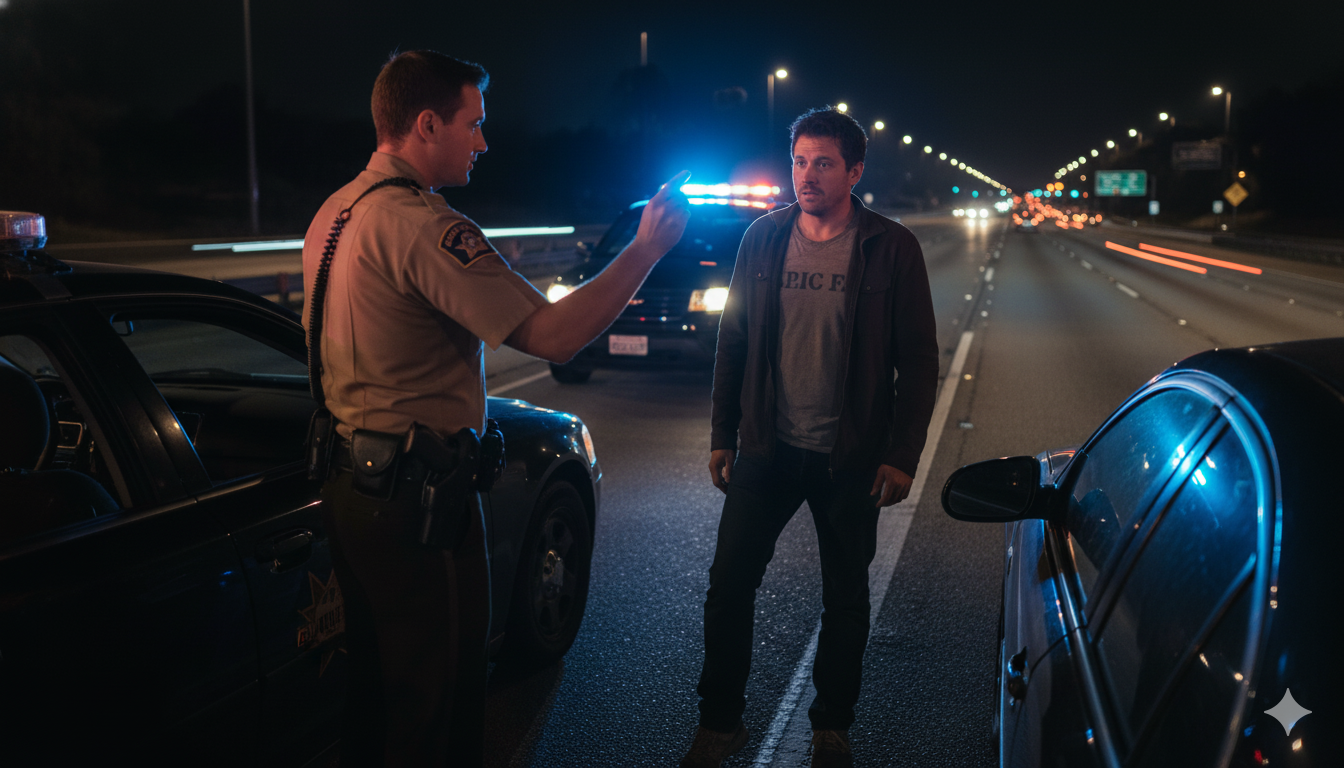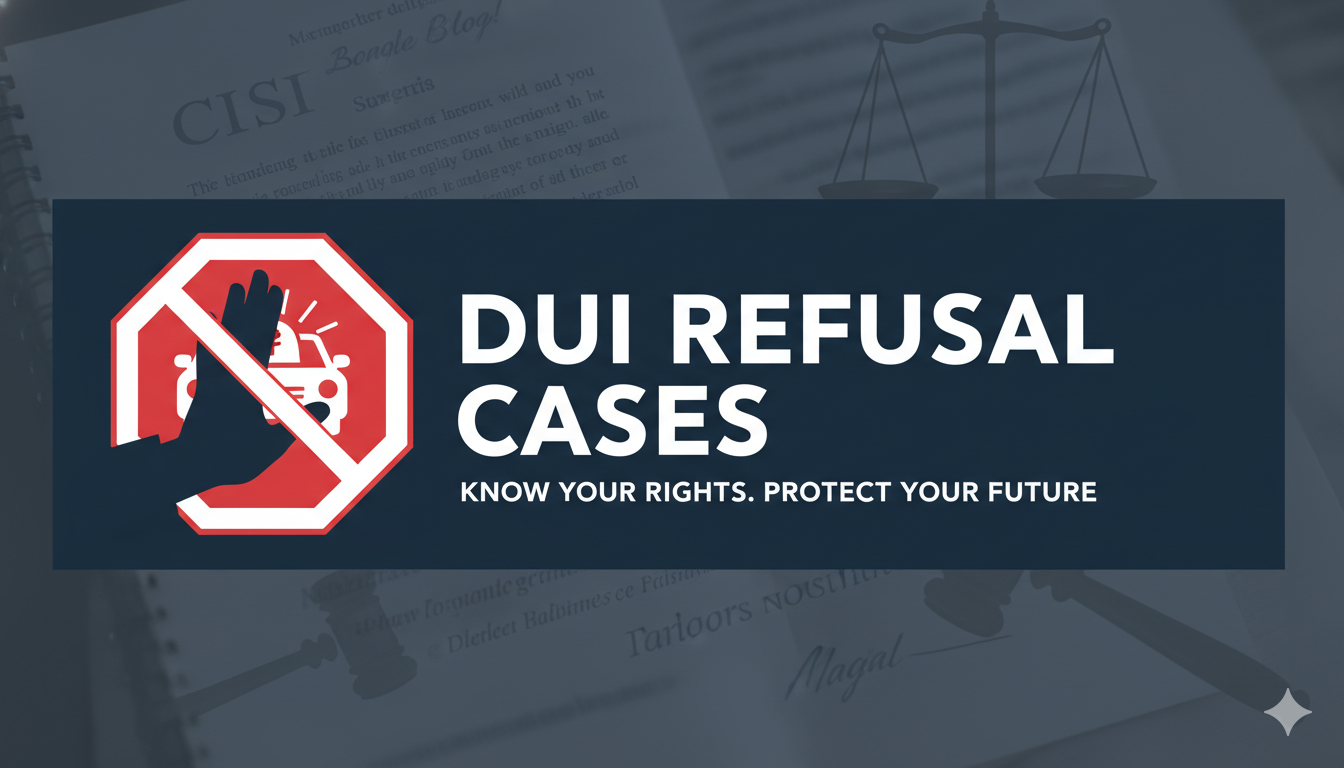Being charged with theft or property crimes in Oceano can feel like a simple mistake is about to ruin your entire future—but you’re not alone, and you have options. Whether you’re dealing with shoplifting charges from stores along Pier Avenue, petty theft under $950 under Proposition 47, grand theft over $950 threatening felony convictions, burglary allegations for entering structures with intent to steal, vehicle theft or joyriding charges, receiving stolen property when you purchased items without knowing they were stolen, robbery involving force or fear, embezzlement from employers, identity theft or credit card fraud, vandalism or property damage, trespassing, possession of burglary tools, organized retail theft, theft from vacation rentals in Oceano’s tourism economy, or serious felony charges that could result in years in state prison and permanent criminal records destroying employment opportunities, understanding California’s theft and property crime laws is the first step toward protecting your freedom, avoiding criminal records that appear on background checks, preserving employment opportunities at Oceano businesses, and achieving outcomes recognizing that many theft charges involve misunderstandings, mistakes about ownership, desperation from financial hardship, or situations where defendants believed they had right to property—making aggressive defense essential to challenging allegations, negotiating reduced charges, pursuing diversion programs avoiding convictions, and achieving dismissals when evidence is insufficient or circumstances warrant leniency rather than permanent branding as thieves in small Oceano community where criminal records create lasting barriers to employment, housing, and opportunities when second chances should be available for first-time offenders who made mistakes.
At Central Coast Criminal Defense, we’ve defended Oceano residents against theft and property crime charges since 2010. We know the San Luis Obispo County courts where Oceano cases are prosecuted, the judges at San Luis Obispo Superior Court who handle theft matters from South County, the prosecutors who pursue theft convictions and restitution, loss prevention officers from Oceano stores who detain shoplifters, and—most importantly—we know how to fight for results that protect what matters most: dismissed charges through insufficient evidence or civil compromise when victims accept restitution, diversion programs including pretrial diversion or deferred entry of judgment allowing dismissals after successful completion, reduced charges from felony to misdemeanor under Proposition 47 when amounts are under $950, minimal sentences when convictions cannot be avoided including probation without custody, challenged valuations when prosecutors inflate amounts to reach felony thresholds, demonstrated lack of intent when defendants didn’t intend permanent deprivation, and civil compromise under PC 1377 when business victims accept restitution agreeing to dismiss charges—fighting for outcomes that recognize many theft cases involve first-time offenders making poor decisions from financial desperation, misunderstandings about ownership or permission, mistakes about value, or situations where non-criminal resolutions through restitution better serve justice than convictions permanently destroying employment prospects at Oceano businesses and opportunities in service-based coastal economy where criminal records create disproportionate barriers to employment when theft convictions brand defendants as dishonest eliminating trustworthiness essential for employment.
What Are Theft and Property Crimes Under California Law?
Theft under California Penal Code Section 484 is unlawfully taking another’s property with intent to permanently deprive the owner, encompassing various forms including larceny, shoplifting, embezzlement, false pretenses, and other fraudulent appropriations. Proposition 47 (2014) reclassified most theft offenses: theft of property valued under $950 is petty theft (PC 484/488) charged as misdemeanor carrying maximum 6 months jail, while theft over $950 is grand theft (PC 487) charged as felony carrying 16 months to 3 years state prison—with critical $950 threshold determining misdemeanor versus felony status making valuation challenges essential to avoiding felony convictions. Common theft and property crimes include petty theft/shoplifting for stealing merchandise from stores, grand theft for taking property over $950 including vehicles, theft from person for pickpocketing or purse snatching, receiving stolen property (PC 496) when knowingly buying or possessing stolen goods, burglary (PC 459) for entering structures with intent to steal carrying 2-6 years prison, robbery (PC 211) involving force or fear during theft carrying 2-9 years prison, vehicle theft or joyriding, identity theft (PC 530.5), credit card fraud, check fraud, embezzlement from employers, vandalism (PC 594) for property damage, trespassing (PC 602), possession of burglary tools (PC 466), and organized retail theft involving coordinated shoplifting operations. Most theft prosecutions require proving defendants intended permanent deprivation—distinguishing theft from temporary borrowing—and that defendants lacked claim of right or good faith belief in ownership, with defenses including lack of intent, claim of right when defendants believed property was theirs, consent from owners, mistake about ownership, insufficient evidence of value reaching felony thresholds, and mistaken identity when defendants weren’t perpetrators.
In Oceano and throughout San Luis Obispo County, theft and property crime charges commonly arise from shoplifting at stores along Pier Avenue when loss prevention detains individuals, theft from vacation rental properties when guests or cleaning staff are accused of taking items, vehicle theft or joyriding when vehicles are taken without permission, employee theft or embezzlement from Oceano businesses, receiving stolen property when individuals purchase items through online marketplaces, burglary when defendants enter structures intending to steal, theft from vehicles in parking lots, organized retail theft rings targeting coastal businesses, credit card fraud using stolen cards, identity theft, vandalism including graffiti or property damage, and trespassing on private property. Theft prosecutions at San Luis Obispo Superior Court involve loss prevention testimony about shoplifting detentions, business owner testimony about missing property or embezzlement, receipts and valuations establishing amounts stolen determining misdemeanor versus felony charges, surveillance video showing theft, witness identifications, possession of stolen property, and sometimes forensic evidence including fingerprints. What makes theft defense particularly important is that charges often arise from financial desperation when individuals steal food or necessities, misunderstandings about permission when defendants believed they could take property, mistakes about value when alleged amounts are inflated to reach felony thresholds, employment from businesses where defendants had access to property creating embezzlement allegations, and situations where restitution to victims better serves justice than criminal convictions permanently destroying employment opportunities when theft convictions brand defendants as dishonest eliminating trustworthiness essential to most employment in Oceano’s service-based tourism economy.
What many Oceano residents charged with theft don’t understand is that Proposition 47 provides significant relief reducing most theft under $950 to misdemeanors avoiding felony records, diversion programs including pretrial diversion under PC 1001.95 allow dismissals for first-time offenders who complete counseling and restitution, civil compromise under PC 1377 allows dismissals when business victims accept restitution and request case dismissals, shoplifting from stores often results in pre-filing civil demands seeking payments to avoid prosecution, and many theft cases can be resolved through restitution without convictions when defendants compensate victims demonstrating accountability without criminal records. Additionally, theft defenses include lack of intent to permanently deprive when defendants intended to return property, claim of right when defendants believed property belonged to them through agreements or relationships, consent when property owners gave permission later rescinded or disputed, insufficient evidence when prosecution cannot prove beyond reasonable doubt that defendants took property or intended theft, inflated valuations when businesses overstate losses to reach felony thresholds, and mistaken identity when defendants weren’t perpetrators particularly in shoplifting cases with poor surveillance or witness identification. California law also recognizes that economic necessity sometimes drives theft crimes, that first-time offenders deserve opportunities for rehabilitation without convictions, that restitution to victims often better serves justice than incarceration, and that criminal records from theft convictions create disproportionate lifetime barriers to employment making alternative resolutions preferable when defendants demonstrate accountability through victim compensation and rehabilitation efforts. Without aggressive representation that challenges valuations keeping charges as misdemeanors, pursues diversion programs avoiding convictions, negotiates civil compromise when victims will accept restitution, demonstrates lack of intent or claim of right, challenges insufficient evidence, and structures outcomes minimizing criminal records, you risk unnecessary felony convictions when misdemeanor reductions are available, permanent criminal records when diversion or civil compromise could avoid convictions, excessive sentences when probation is appropriate, inflated restitution based on exaggerated valuations, and permanent branding as thief destroying employment opportunities at Oceano businesses where trustworthiness is essential and theft convictions eliminate employability in service industry, hospitality, retail, and most other sectors when criminal background checks reveal theft convictions that employers interpret as disqualifying dishonesty making future employment nearly impossible in small coastal community with limited opportunities and competitive job market.
- Legal Definition: Theft under PC 484 is unlawfully taking another’s property with intent to permanently deprive owner, with Proposition 47 making theft under $950 petty theft misdemeanor carrying maximum 6 months jail, and theft over $950 grand theft felony carrying 16 months to 3 years prison, with related property crimes including burglary (PC 459) for entering structures with intent to steal, robbery (PC 211) involving force during theft, receiving stolen property (PC 496), and vandalism (PC 594), requiring proof of intent to permanently deprive, lack of claim of right, and value determinations critical to misdemeanor versus felony charging.
- Why It’s Devastating: Theft convictions create permanent criminal records appearing on background checks destroying employment opportunities at Oceano businesses, brand defendants as dishonest and untrustworthy eliminating employability in service industry and retail, result in jail or prison time depending on amounts and circumstances, require substantial restitution to victims, create probation supervision with restrictions, and carry social stigma in Oceano’s tight-knit community—with theft convictions being particularly damaging for employment because employers view theft as character flaw indicating dishonesty making convicted individuals unemployable in positions requiring cash handling, property access, or any trustworthiness.
- Common Situations: Shoplifting from stores along Pier Avenue when loss prevention detains individuals, theft from vacation rental properties by guests or staff, employee theft from Oceano businesses, receiving stolen property through online purchases, vehicle theft or joyriding, burglary entering structures to steal, organized retail theft, credit card fraud, embezzlement from employers, vandalism and property damage, and situations involving financial desperation, misunderstandings about permission or ownership, mistakes about value, or first-time offenders who deserve diversion opportunities and civil compromise when victims accept restitution avoiding convictions that would permanently destroy employment prospects in coastal community.
Proposition 47 Protects You: Theft under $950 must be charged as misdemeanor not felony. Diversion programs allow dismissals for first-time offenders. Civil compromise permits dismissals when victims accept restitution. Call +1 (805) 621-7181 immediately if charged with theft—early intervention provides best opportunity for diversion, civil compromise, or reduced charges avoiding criminal record.
Theft and Property Crimes We Defend in Oceano
We defend clients against all theft and property crime charges in Oceano, San Luis Obispo County, and surrounding South County areas. Here are the offenses we handle:
Shoplifting and Retail Theft
- Shoplifting (PC 459.5)
Entering stores with intent to steal merchandise valued under $950 | Misdemeanor under Prop 47: Maximum 6 months jail, pursue diversion or civil compromise, challenge loss prevention detention - Petty Theft from Stores (PC 484/488)
Stealing merchandise from Oceano businesses along Pier Avenue | Common: First-time offenses, negotiate diversion programs, civil compromise with store owners, challenge identifications - Organized Retail Theft
Coordinated shoplifting operations or theft for resale | Enhanced penalties: Challenge organization allegations, demonstrate isolated incident, negotiate reduced charges - Loss Prevention Detentions
Cases arising from citizen’s arrests by store security | Defense: Challenge reasonable suspicion for detention, demonstrate illegal confinement, suppress evidence from unlawful stops
Petty Theft and Grand Theft
- Petty Theft Under $950 (PC 484/488)
Theft of property valued under $950 | Misdemeanor: Maximum 6 months jail, pursue pretrial diversion, civil compromise, challenge valuations keeping under $950 - Grand Theft Over $950 (PC 487)
Theft of property valued over $950 | Felony: 16 months-3 years prison, challenge valuations reducing to misdemeanor, demonstrate Prop 47 relief, negotiate reductions - Grand Theft Person (PC 487(c))
Theft directly from someone’s person (pickpocketing, purse snatching) | Felony regardless of amount: More serious, challenge whether taking was from person, demonstrate lack of force - Theft from Vacation Rentals
Taking property from vacation rental homes in Oceano | Common in tourist areas: Challenge ownership, demonstrate permission, mistaken taking of personal items
Vehicle Theft
- Vehicle Theft (PC 487(d)(1))
Stealing vehicles in Oceano or surrounding areas | Felony: Prison time likely, challenge intent to permanently deprive, demonstrate joyriding or permission - Joyriding (VC 10851)
Taking vehicles without permission for temporary use | Wobbler: Less serious than theft, demonstrate intent to return, lack of permanent deprivation intent - Unlawful Taking of Vehicle
Driving vehicles without owner permission | Defense: Demonstrate permission, misunderstanding about authority to use vehicle, family or relationship context
Burglary
- First-Degree Burglary (PC 459)
Entering inhabited dwellings with intent to steal | Serious felony: 2-6 years prison, strike offense, challenge intent at entry, demonstrate permission or mistake - Second-Degree Burglary (PC 459)
Entering commercial structures or uninhabited buildings with intent to steal | Wobbler: Shoplifting under $950, challenge intent element, demonstrate lack of entry intent, negotiate misdemeanor - Burglary from Vehicles
Breaking into vehicles to steal property | Common: Parking lots in Oceano, challenge intent and identification, demonstrate mistake about ownership - Intent to Commit Theft
Prosecution must prove intent existed at moment of entry | Critical defense: Demonstrate entry was lawful, intent formed after entry, lack of theft intent
Robbery
- Robbery (PC 211)
Taking property through force or fear | Serious felony: 2-9 years prison, strike offense, challenge force/fear element, demonstrate no theft or mistaken identity - Strong-Arm Robbery
Robbery without weapons using physical force | Second-degree robbery: Serious but less than armed, challenge whether force used, demonstrate mutual combat not robbery - Estes Robbery
Theft that becomes robbery when force used to retain property or escape | Defense: Challenge whether force was used, demonstrate property abandoned or no force to escape
Receiving Stolen Property
- Receiving Stolen Property (PC 496)
Buying, receiving, or concealing property knowing it’s stolen | Wobbler: Challenge knowledge element, demonstrate reasonable belief property wasn’t stolen, legitimate purchase - Online Marketplace Purchases
Buying stolen items through Craigslist, Facebook, or other platforms | Defense: Demonstrate lack of knowledge property was stolen, reasonable price and circumstances suggesting legitimate sale - Possession of Stolen Property
Found with stolen property after theft by others | Challenge: Knowledge and possession elements, demonstrate others had access, lack of knowledge about theft
Employee Theft and Embezzlement
- Employee Theft
Stealing from employers including cash, merchandise, or property | Common: Oceano businesses, pursue civil compromise when employers will accept restitution, challenge amounts - Embezzlement (PC 503)
Fraudulent appropriation of property entrusted through employment | Felony if over $950: Challenge intent, demonstrate authorization, civil dispute not criminal theft - Cash Register Theft
Taking money from registers or till | Defense: Challenge whether defendant had access, demonstrate accounting errors, other employees’ opportunity
Identity Theft and Fraud
- Identity Theft (PC 530.5)
Using another’s personal information without permission | Wobbler: Challenge whether defendant used information, demonstrate authorized use, mistake about identity - Credit Card Fraud (PC 484g, 484i)
Using stolen or fraudulent credit cards | Felony: Challenge knowledge card was stolen, demonstrate authorized use or mistake - Check Fraud (PC 476)
Forging or using fraudulent checks | Wobbler: Challenge forgery allegations, demonstrate authorization, insufficient evidence - Access Card Fraud
Fraudulent use of ATM or debit cards | Defense: Challenge whether defendant made transactions, demonstrate authorized use
Vandalism and Property Damage
- Vandalism (PC 594)
Malicious damage or destruction of property | Misdemeanor under $400, felony over: Challenge amounts, demonstrate accident not malice, negotiate restitution - Graffiti
Spray painting or marking property in Oceano | Common: Young offenders, pursue diversion, demonstrate community service and restitution, avoid convictions - Property Damage
Destroying or damaging others’ property | Defense: Challenge intent, demonstrate accident, negotiate civil resolution with property owners
Trespassing and Burglary Tools
- Trespassing (PC 602)
Entering or remaining on property without permission | Misdemeanor: Usually minor, challenge whether entry was knowing, demonstrate permission or mistake - Possession of Burglary Tools (PC 466)
Possessing tools with intent to use for burglary | Misdemeanor: Challenge intent element, demonstrate legitimate purposes for tools
Proposition 47 Relief
- Felony Reduction Under Proposition 47
Reducing prior felony theft convictions to misdemeanors | Retroactive relief: File petitions reducing old felony convictions when amounts under $950, clear felony records - Current Case Prop 47 Arguments
Arguing charges must be filed as misdemeanors not felonies | Critical: Challenge valuations, demonstrate amounts under $950, force misdemeanor charging
Charged with theft or property crime in Oceano? Proposition 47 limits felony exposure. Diversion programs allow dismissals for first-time offenders. Civil compromise permits case dismissals when victims accept restitution. Call +1 (805) 621-7181 immediately—early intervention provides best opportunity for favorable outcomes avoiding criminal records that destroy employment.
What’s at Stake: Consequences of Theft Convictions
Theft and property crime convictions carry serious consequences affecting employment and opportunities. Here’s what you face:
Criminal Penalties
- County jail up to 6 months for petty theft misdemeanors
- State prison 16 months-3 years for grand theft felonies
- State prison 2-6 years for burglary with strike consequences
- State prison 2-9 years for robbery as serious violent felony
- Substantial restitution to victims for full property values
- Probation supervision with search conditions and restrictions
- Community service and theft prevention programs
Employment and Reputation Destruction
- Permanent criminal records appearing on all background checks
- Employment termination and rejection from Oceano businesses
- Branding as dishonest and untrustworthy eliminating employability
- Barriers to service industry, retail, hospitality employment
- Professional license consequences for bonded positions
- Housing denials from landlords conducting background screenings
- Immigration consequences for non-citizens as crimes involving moral turpitude
- Social stigma in Oceano’s tight-knit community affecting relationships
⚠️ Theft convictions permanently brand you as dishonest destroying employment opportunities. Diversion and civil compromise can avoid convictions. Call immediately for consultation pursuing dismissal, diversion, or reduced charges avoiding criminal record.
How We Defend Theft and Property Crime Charges
Since 2010, we’ve defended Oceano residents against theft and property charges with a comprehensive approach:
- Pursuing Pretrial Diversion Programs
We immediately evaluate eligibility for pretrial diversion under PC 1001.95 allowing dismissals for first-time offenders, present evidence of employment, community ties, and rehabilitation potential demonstrating worthiness for diversion, negotiate with prosecutors for diversion approval, secure diversion agreements requiring counseling, community service, and restitution with dismissal upon completion, and achieve complete dismissals avoiding criminal records that would permanently destroy employment opportunities. - Negotiating Civil Compromise
We contact business victims offering full restitution for losses, structure affordable payment plans, obtain signed civil compromise agreements under PC 1377 where victims acknowledge compensation and request case dismissals, present civil compromise motions to prosecutors and judges at San Luis Obispo Superior Court, and secure dismissals avoiding convictions when victims are made whole preferring restitution to prosecution. - Challenging Valuations Under Proposition 47
We aggressively challenge prosecution’s property valuations when amounts are claimed over $950 to reach felony thresholds, retain appraisers and experts demonstrating actual values under $950, present evidence of depreciation, condition, and fair market value contradicting inflated claims, force misdemeanor charging under Proposition 47 when values don’t support felonies, and reduce charges from felonies to misdemeanors eliminating prison exposure and felony records. - Demonstrating Lack of Intent
We present evidence showing defendants lacked intent to permanently deprive owners when taking was temporary borrowing or mistake, demonstrate claim of right when defendants believed property belonged to them through agreements or relationships, show consent from property owners or belief in permission, prove mistake about ownership or authority to take property, and establish insufficient evidence of theft intent distinguishing from innocent conduct. - Challenging Loss Prevention Detentions
For shoplifting cases we challenge whether loss prevention officers had reasonable suspicion for citizen’s arrests, demonstrate illegal confinements or excessive force during detentions, file motions to suppress evidence from unlawful stops, expose false accusations from overzealous security, and secure dismissals when detentions violated rights or allegations are unsupported. - Challenging Insufficient Evidence
We challenge whether prosecution can prove beyond reasonable doubt that defendants took property, demonstrate mistaken identity when surveillance is poor or witness identifications unreliable, show others had access and opportunity to commit thefts, present alibis contradicting theft allegations, and create reasonable doubt warranting acquittals or dismissals. - Negotiating Reduced Charges
We negotiate with prosecutors for charge reductions from grand theft to petty theft, burglary to trespassing, robbery to theft, and embezzlement to unauthorized use, demonstrate mitigating circumstances including financial hardship, first-time offenses, minimal amounts, and restitution, secure reduced charges eliminating felony records and prison exposure, and structure outcomes minimizing criminal consequences. - Trial Defense When Necessary
When cases go to trial we present comprehensive defenses through defendant testimony explaining conduct, witnesses contradicting allegations, documentary evidence supporting claim of right or permission, cross-examination exposing accusers’ motivations or errors, expert testimony about valuations, and closing arguments demonstrating reasonable doubt based on insufficient evidence or alternative explanations warranting not guilty verdicts. - Minimizing Sentences and Restitution
When convictions cannot be avoided we present comprehensive mitigation evidence demonstrating employment, family ties, rehabilitation efforts, and changed circumstances, negotiate minimum sentences including probation without custody, challenge inflated restitution amounts through independent valuations, secure affordable payment plans, and minimize consequences allowing defendants to maintain employment and support families while repaying victims. - Pursuing Proposition 47 Resentencing
For clients with prior felony theft convictions we file Proposition 47 petitions reducing old felonies to misdemeanors when amounts were under $950, eliminate felony records from rap sheets, restore rights, and clear criminal histories improving employment prospects by removing felony branding that creates severe barriers.
Our Oceano theft and property crime defense practice has resulted in numerous dismissed charges through civil compromise when victims accepted restitution, successful diversion completions avoiding convictions entirely, reduced charges from felonies to misdemeanors under Proposition 47, demonstrated lack of intent or claim of right securing acquittals, challenged valuations keeping charges as misdemeanors, exposed false accusations from loss prevention or business owners, negotiated probation without custody for first-time offenders, minimized restitution based on accurate valuations, and helped countless Oceano residents avoid criminal records that would have permanently destroyed employment opportunities at local businesses. We understand that many theft charges arise from financial desperation when individuals struggling economically make poor decisions stealing necessities, first-time offenders who deserve second chances through diversion avoiding permanent criminal branding, misunderstandings about permission or ownership when defendants believed they had right to property, employee theft situations where restitution better serves justice than convictions destroying careers, and young people making mistakes who need rehabilitation opportunities not criminal records permanently limiting futures. Many Oceano residents we represent facing theft charges are good people who made poor decisions from circumstances including poverty, substance abuse, mental health issues, or desperation—not career criminals deserving permanent branding as thieves—and we fight to achieve outcomes recognizing that restitution to victims, accountability through diversion programs, and rehabilitative consequences better serve justice than convictions permanently destroying employment opportunities in service-based coastal economy where criminal records create disproportionate barriers when employers conducting background checks automatically reject applicants with theft convictions interpreting them as character flaws indicating dishonesty making individuals permanently unemployable in hospitality, retail, and service sectors that dominate Oceano employment market creating cycles of poverty and recidivism when alternative resolutions through diversion and civil compromise would allow productive contributions to community without permanent criminal branding.
When theft charges threaten employment and opportunities in Oceano’s service economy, you need more than just legal representation—you need an advocate who fights for diversion, civil compromise, and outcomes avoiding criminal records. That’s exactly what you get with Central Coast Criminal Defense.
Get Your Free Consultation Today
Don’t wait if charged with theft or property crime. Proposition 47 protects you from felony charges when amounts are under $950. Diversion programs allow dismissals for first-time offenders. Civil compromise permits dismissals when victims accept restitution. Call now for immediate theft defense consultation pursuing favorable outcomes avoiding criminal records destroying employment in Oceano.












